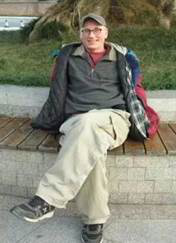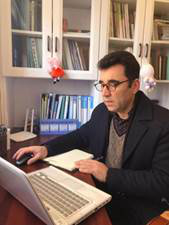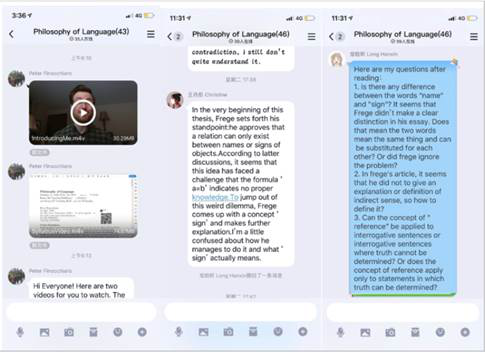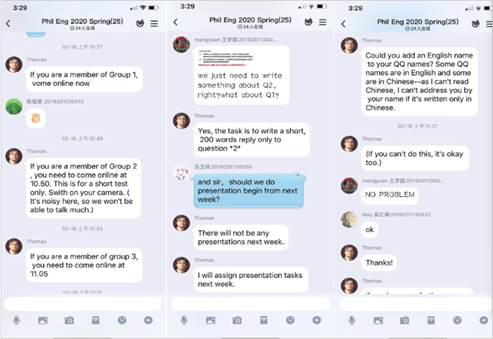Confronted with the sudden outbreak of the COVID-19 infection, the international faculty of Wuhan University cares for Wuhan, a city that has dedicated heroic efforts during hard time. They stood fast at their posts and have made their contributions for the battle against virus. Though coming from foreign countries, they still hold profound love and passion for this suffering city.
“We’ve decided to stay in Wuhan”
“We have been living in Wuhan for more than a decade. Both of our children were born here, and we are not leaving. The sense of belonging can’t be represented by a single passport, but shall be felt by heart,” said Timo Balz, a German professor at State Key Lab of Information Engineering in Surveying, Mapping and Remote Sensing. He previously declined the proposal of returning to Germany from the German Embassy and decided to stay in Wuhan.

Timo Balz
Professor Stephen MaCollum, an American colleague of Timo Balz, has been working in the lab for 9 years. He also turned down the suggestion of flying back to America when the U. S. Embassy phoned him. He was determined to stay in Wuhan to fight against the disease with his colleagues.

Stephen MaCollum
Abe from Iraq is an associate professor in School of Electronic Engineering and Automation. It has been 14 years since he came to Wuhan, where he studied, worked and settled. After the COVID-19 broke out, Abe and his families canceled many reunions to meet and eat together during the Chinese New Year. He said, “We have a fulfilled life at home. We watch news and TV series, disinfect our house and do exercise every day. We also have the time to accompany our children and help with their homework. My families in Iraq called to check whether we are doing well, and I responded that there is nothing to worry about and everything goes fine here.” He added, “I believe that the Chinese government has the capacity to address the situation in a short time. I’m not going to leave Wuhan.”

Abe
Making contributions to their second hometown
Since the outbreak of the virus, some false statements and baleful accusations have appeared in many international social media and forums. In face of these rumors, the international faculty actively gave voice to their stories in China through the social media and helped the international community to know the situation happening in China in a more complete and comprehensive manner.
Sylvia Schroeder from Germany is teaching in School of Foreign Languages and Literature. She published an article entitled Why I love living in Wuhan and worry for its future on The Irish Times. In this article, she says, “What I’ve seen over the last few weeks is a city that has come together with an unrivalled resolve to overcome a major crisis through combined strength of solidarity in the face of adversity, a people working together in self-sacrifice, an unbelievable determination to get the situation under control, and a hope for normality to return as soon as possible. People are going out of their way to help and support each other. They choose to believe that they can beat the crisis to return life to normal as quickly as possible.” She received the interview from China Global Television Network (CGTN) on Feb 8, 2020 and expressed steadily that she had already considered Wuhan as her hometown.

Sylvia Schroeder
In the interview by Cicero on Jan 28, a monthly German magazine, Timo Balz said, “China has gained rich experience from the combat against SARS, and Wuhan has large research centers and researchers with professional knowledge. I believe in the system here. Though the number of patients is astonishing, China still possesses the capacity to settle the situation.” Later, he published another article on People’s Daily titled “Confronting the COVID-19 needs collaboration”. In this article, he presents the peaceful and orderly life of his family, and criticizes the racism promoted by some media and politicians of other countries. “Perhaps many people think that the situation here is a disaster. That’s not the truth. In fact, our lives are quite tranquil. We stay at home, avoid going out, and do some shopping if necessary... Wuhan has done quite good job in crisis management, which goes down to the grass-root communities. That ensure all issues to be solved. For example, the local communities are providing food procurement and delivery services for the aged and disabled person as well as isolated patients. Such an ability to organize is really unbelievable and remarkable.”
Actively engaging in online teaching
From Feb. 17, 2020, the international faculty of WHU throughout the world actively responded the call of the university to ensure learning undisrupted during the epidemic period. They overcame the difficulty of time difference and kept exploring more effective ways of teaching online. According to the statistics, there are 40 members of the international teaching staff in total at present who are conducting online teaching, covering 60 online courses.
Peter Finocchiaro, an associate professor in School of Philosophy, is teaching the Philosophy of Language in New York right now. To ensure the teaching effects, he recorded the teaching videos in advance and uploaded the exquisite teaching materials. The atmosphere in the QQ teaching group is very positive, in which Peter vigorously interacts with his students.
Considering the new teaching mode, Thomas Bige, who lives in Australia currently, adopts the method that he has learned when he was an Oxford doctoral student. He divides the original classes into four groups, with 5-6 students in each. Every group will be allocated half an hour to make sure all the students have as much time as possible to interact with him.
Maureen Besseloli, currently in France, teaches the Introduction to French on Ding Talk, an enterprise communication and collaboration platform developed by Alibaba Group, assisted by PPT with abundant pictures. He takes Paris as the focus of his teaching, introducing the changes during the Frankish period and its historical sites. His appealing and vivid teaching has aroused the interest of the students and their active participation.

Peter Finocchiaro energetically interacts with his students

Thomas Bige adopts the teaching method that he learned when he was a doctoral student in Oxford

Maureen Besseloli uses exquisite PPT to give lessons to students of the French Department
Confronted with these brand-new online classes, students also make great efforts to cooperate. When the German teacher Rize raised questions in the QQ group, more than 20 students answered in less than 2 minutes. Rize carefully corrected the vocabulary and grammar mistakes in their replies. Many students expressed that, “Mrs. Rize will call our Germany names one by one. We dare not be absent-minded in class. Also, her class is really rewarding.”
Photos by Office of International Affairs of WHU
Rewritten by Yu Jianan
Edited by Sui Tang, Zhou Siyan, Geng Jinwei & Hu Sijia


